Ministers "encourage EC" to drop visas by 2010
European Union foreign ministers met on Monday to decide whether they would propose that visas for the Western Balkans countries be abolished.
Monday, 15.06.2009.
10:17

European Union foreign ministers met on Monday to decide whether they would propose that visas for the Western Balkans countries be abolished. A statement after the meeting said that the council "welcomes the updated assessment reports presented by the European Commission on the progress in the visa liberalization dialogues with Albania, Bosnia and Herzegovina, the former Yugoslav Republic of Macedonia, Montenegro and Serbia". Ministers "encourage EC" to drop visas by 2010 "The reports reflect the clear progress made by these countries in meeting the benchmarks set out in the visa liberalization roadmaps," the statement said, and continued that the council "encourages the European Commission to present as soon as possible" a legislative proposal amending relevant regulation "in order to achieve a visa free regime ideally by the end of 2009 with those countries that will have met all the benchmarks". The council also "welcomed the progress achieved so far" and called for the countries in the region to "further accelerate and implement reforms to fulfill soon the necessary benchmarks". Serbian Deputy PM Bozidar Djelic said that those countries are Serbia, Montenegro and Macedonia, and that Serbia must now "implement all technical and other conditions" so that visas that have been imposed on her citizens are dropped in the fall. As for the fate of the frozen interim trade deal between Serbia and the EU, the ministers will on Thursday and Friday consider this issue. Djelic told reporters that this was decided after an "exchange of opinions with Chief Hague Prosecutor Serge Brammertz". Djelic also said he spoke to some EU ministers and EU Enlargement Commissioner Olli Rehn. Britain's Foreign Secretary David Miliband said after the meeting that "Serbia will be further discussed", while Djelic explained that the Netherlands today offered to have "some parts of the Interim Trade Agreement unfrozen, but not all of it". The agreement itself is part of the SAA, signed over a year ago and immediately blocked by Brussels, pending Serbia's full cooperation with the UN war crimes court in The Hague. Reports say that apart from Belgium, all other EU countries were in favor of unfreezing the whole of the interim trade deal, saying this would be justified by the level of cooperation Serbia has demonstrated. Earlier in the day, it was heard that a Serbian delegation would be lobbying in Luxembourg for visa liberalization to become the official stance of the entire EU. On the other hand, Serbian officials were not optimistic about the meeting in Luxembourg being an opportunity to make some progress on the issue of unfreezing the Stabilization and Association Agreement (SAA) between Serbia and the EU. Djelic, who was leading the delegation, said ahead of the meeting today that key progress would be made if the EU Council of Ministers made a joint decision for the first time to support Serbia on the road to the so-called white Schengen list. “We don’t expect any kind of political conditions, one great technical job is now ahead of us, but, as we saw in Brussels on Friday, commissioners Rehn and Barrot said that the Commission will give a recommendation by the end of July for abolishing visas for our citizens, as well as for Macedonia and Montenegro,” Djelic said. “They only thing left is to reach a consensus between the member-states of the European Union. What is expected is that all the member-states take the same stance regarding the white Schengen for the first time,” Djelic said. He said that it is not very likely that the Netherlands would change its firm stance regarding the SAA, which is that it cannot be unblocked until Serbia’s cooperation with the Hague Tribunal is completed. Serbian Government Office for European Integrations Director Milica Delevic said on Sunday said she expects the European Union Council of Ministers to adopt conclusions in favor of visa liberalization for those countries of this region which meet the required conditions, including Serbia. "It is up to us to do everything to see that Serbia is among such countries also when the Stabilization and Association Agreement is concerned," Delevic told Tanjug. She expressed confidence that Serbia has done enough for the unfreezing of the Interim Agreement on trade and that it has made sufficient progress "which we see is being noticed by increasing numbers of countries and international organizations" and that is noted in the report by Brammertz, but would not speculate on when this might happen. She also said that Serbia is cooperating with the Hague "not because of the European integrations above all", but for its own sake, "because of an obligations to establish responsibility for the crimes committed in previous years". The interim trade deal with Serbia was also a topic of discussion in Luxembourg, with Brammertz participating in these talks. He was expected to inform ministers of his last report on Serbia’s cooperation, recently presented to the UN Security Council, which stated that Serbia has made progress. The decision to unblock the SAA must also be made unanimously by all 27 EU member-states. The EU will make its own decision, which will be taking Brammertz’s report into consideration, Christina Gallach told Danas newspaper. The spokeswoman for EU Security and Foreign Policies Chief Javier Solana said that the EU is currently analyzing the progress and discussing visa liberalization for Serbia and other Western Balkan countries. However, Gallach said that the job is not finished and that the countries are still being encouraged to complete all conditions set on the road map to visa liberalization. “It is clear that good progress exists, but it is important for Serbia to put effort into fulfilling all conditions set by the road map,” she said. “We completely support and want to see the entire Western Balkans on the white Schengen list. But, in order to do this, Serbia and her neighbors must focus on a full implementation of the conditions. Everyone knows what needs to be done,” Gallach said.
Ministers "encourage EC" to drop visas by 2010
"The reports reflect the clear progress made by these countries in meeting the benchmarks set out in the visa liberalization roadmaps," the statement said, and continued that the council "encourages the European Commission to present as soon as possible" a legislative proposal amending relevant regulation "in order to achieve a visa free regime ideally by the end of 2009 with those countries that will have met all the benchmarks".The council also "welcomed the progress achieved so far" and called for the countries in the region to "further accelerate and implement reforms to fulfill soon the necessary benchmarks".
Serbian Deputy PM Božidar Đelić said that those countries are Serbia, Montenegro and Macedonia, and that Serbia must now "implement all technical and other conditions" so that visas that have been imposed on her citizens are dropped in the fall.
As for the fate of the frozen interim trade deal between Serbia and the EU, the ministers will on Thursday and Friday consider this issue.
Đelić told reporters that this was decided after an "exchange of opinions with Chief Hague Prosecutor Serge Brammertz". Đelić also said he spoke to some EU ministers and EU Enlargement Commissioner Olli Rehn.
Britain's Foreign Secretary David Miliband said after the meeting that "Serbia will be further discussed", while Đelić explained that the Netherlands today offered to have "some parts of the Interim Trade Agreement unfrozen, but not all of it".
The agreement itself is part of the SAA, signed over a year ago and immediately blocked by Brussels, pending Serbia's full cooperation with the UN war crimes court in The Hague.
Reports say that apart from Belgium, all other EU countries were in favor of unfreezing the whole of the interim trade deal, saying this would be justified by the level of cooperation Serbia has demonstrated.
Earlier in the day, it was heard that a Serbian delegation would be lobbying in Luxembourg for visa liberalization to become the official stance of the entire EU.
On the other hand, Serbian officials were not optimistic about the meeting in Luxembourg being an opportunity to make some progress on the issue of unfreezing the Stabilization and Association Agreement (SAA) between Serbia and the EU.
Đelić, who was leading the delegation, said ahead of the meeting today that key progress would be made if the EU Council of Ministers made a joint decision for the first time to support Serbia on the road to the so-called white Schengen list.
“We don’t expect any kind of political conditions, one great technical job is now ahead of us, but, as we saw in Brussels on Friday, commissioners Rehn and Barrot said that the Commission will give a recommendation by the end of July for abolishing visas for our citizens, as well as for Macedonia and Montenegro,” Đelić said.
“They only thing left is to reach a consensus between the member-states of the European Union. What is expected is that all the member-states take the same stance regarding the white Schengen for the first time,” Đelić said.
He said that it is not very likely that the Netherlands would change its firm stance regarding the SAA, which is that it cannot be unblocked until Serbia’s cooperation with the Hague Tribunal is completed.
Serbian Government Office for European Integrations Director Milica Delević said on Sunday said she expects the European Union Council of Ministers to adopt conclusions in favor of visa liberalization for those countries of this region which meet the required conditions, including Serbia.
"It is up to us to do everything to see that Serbia is among such countries also when the Stabilization and Association Agreement is concerned," Delević told Tanjug.
She expressed confidence that Serbia has done enough for the unfreezing of the Interim Agreement on trade and that it has made sufficient progress "which we see is being noticed by increasing numbers of countries and international organizations" and that is noted in the report by Brammertz, but would not speculate on when this might happen.
She also said that Serbia is cooperating with the Hague "not because of the European integrations above all", but for its own sake, "because of an obligations to establish responsibility for the crimes committed in previous years".
The interim trade deal with Serbia was also a topic of discussion in Luxembourg, with Brammertz participating in these talks. He was expected to inform ministers of his last report on Serbia’s cooperation, recently presented to the UN Security Council, which stated that Serbia has made progress.
The decision to unblock the SAA must also be made unanimously by all 27 EU member-states. The EU will make its own decision, which will be taking Brammertz’s report into consideration, Christina Gallach told Danas newspaper.
The spokeswoman for EU Security and Foreign Policies Chief Javier Solana said that the EU is currently analyzing the progress and discussing visa liberalization for Serbia and other Western Balkan countries.
However, Gallach said that the job is not finished and that the countries are still being encouraged to complete all conditions set on the road map to visa liberalization.
“It is clear that good progress exists, but it is important for Serbia to put effort into fulfilling all conditions set by the road map,” she said.
“We completely support and want to see the entire Western Balkans on the white Schengen list. But, in order to do this, Serbia and her neighbors must focus on a full implementation of the conditions. Everyone knows what needs to be done,” Gallach said.





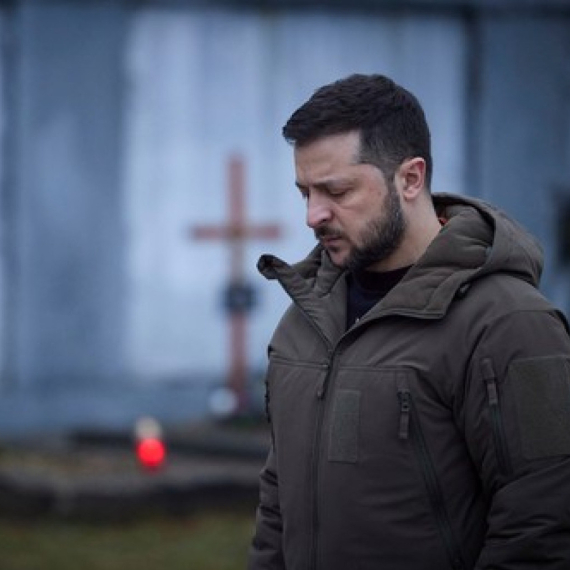
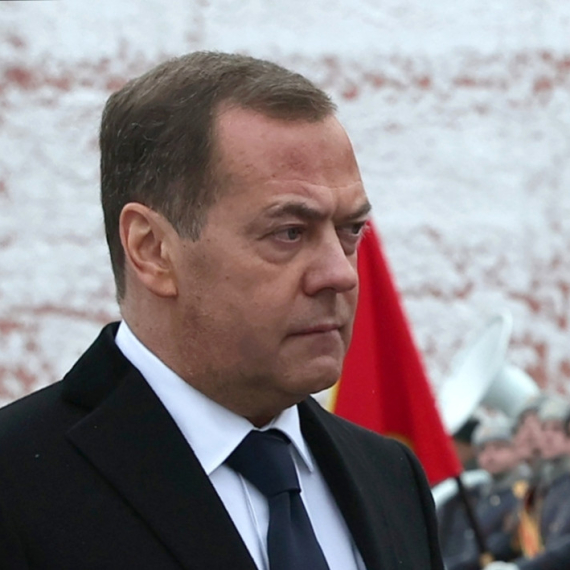








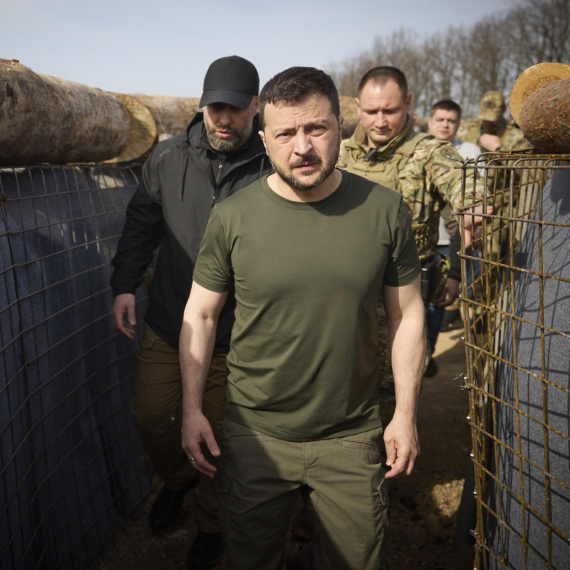
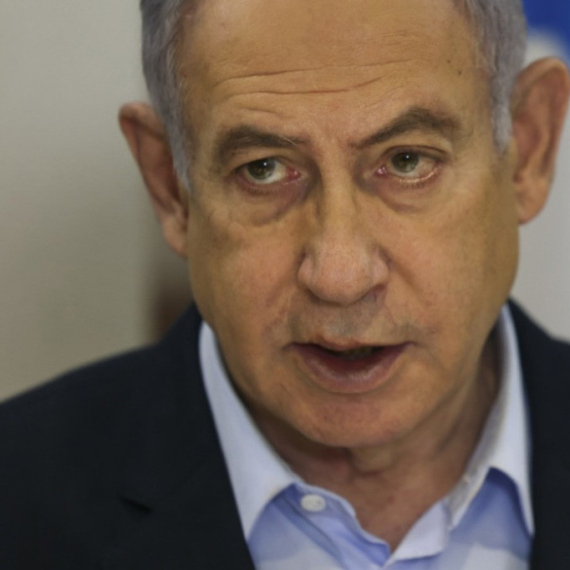
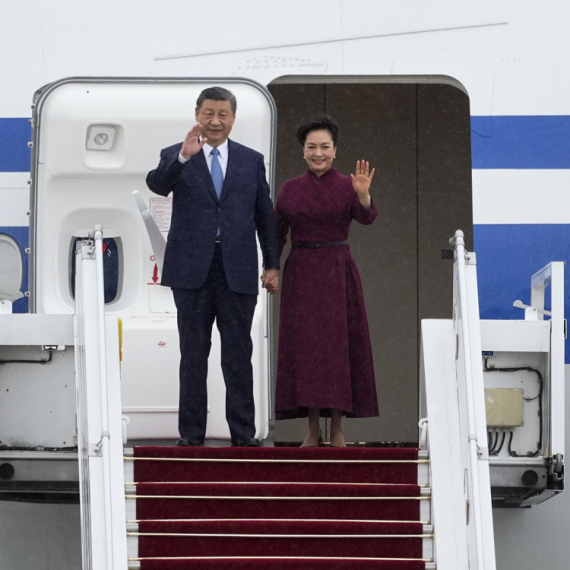






















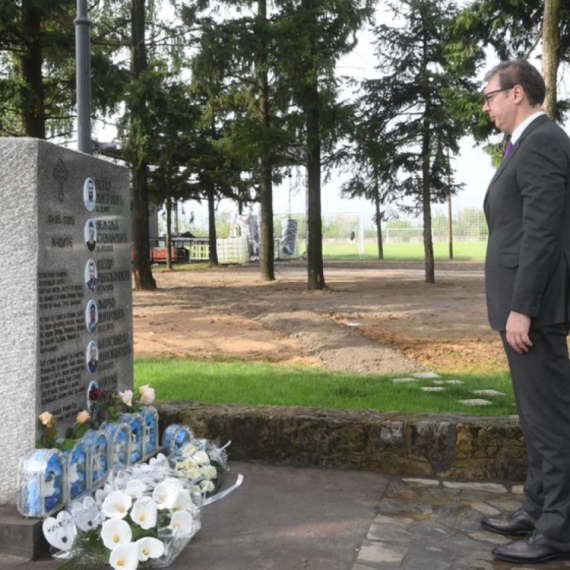

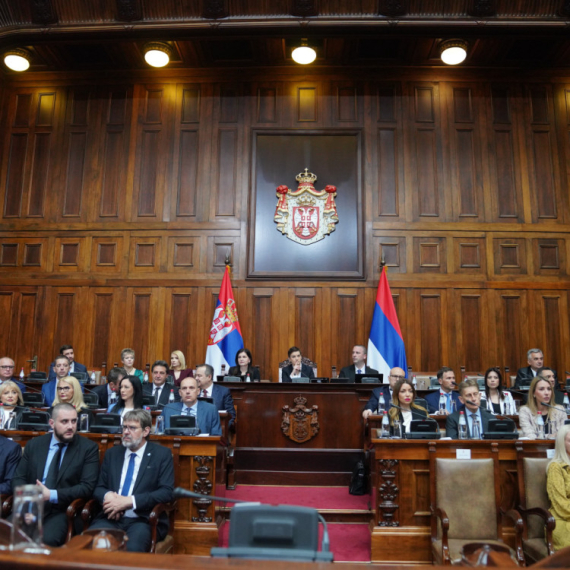
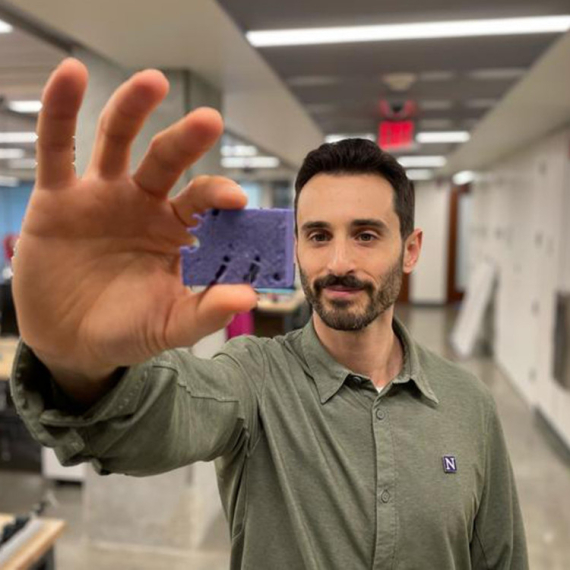




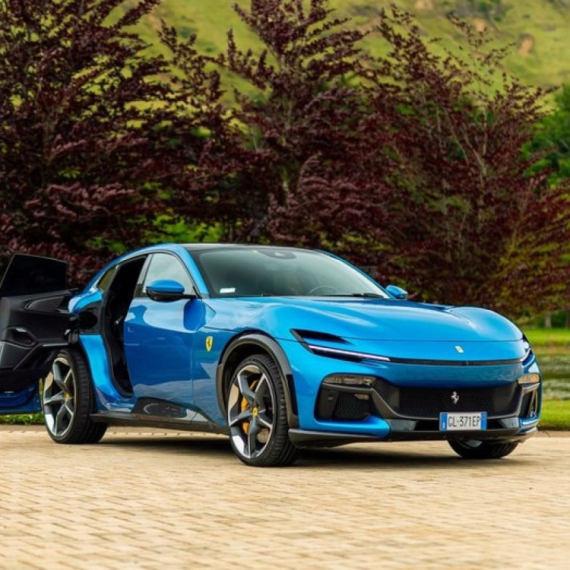







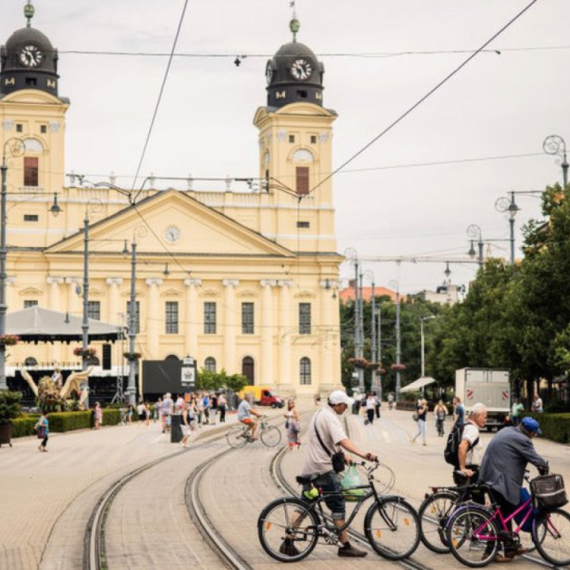
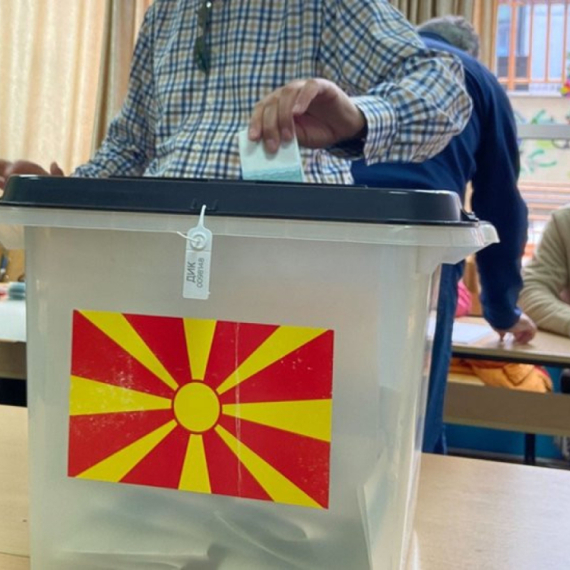

Komentari 4
Pogledaj komentare